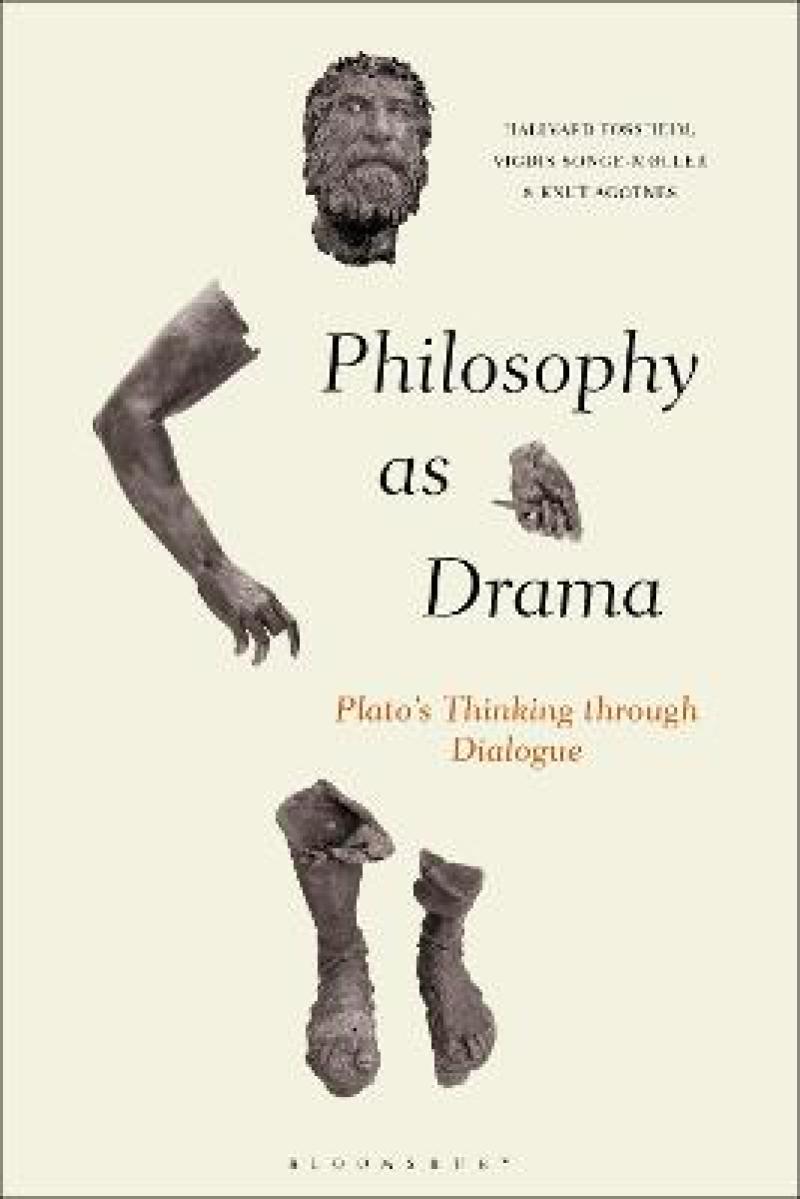<i>Philosophy as Drama</i> illuminates the relationship between the genre of Platonic dialogue and philosophical practice. This collection is a fine work of creative scholarship that not only gives us fresh insight into Plato's literary form, but also deepens our understanding of how virtue and political community are intertwined with dialogue.
Marina McCoy, Associate Professor of Philosophy, Boston College, USA
Plato’s philosophical dialogues can be seen as his creation of a new genre. Plato borrows from, as well as rejects, earlier and contemporary authors, and he is constantly in conversation with established genres, such as tragedy, comedy, lyric poetry, and rhetoric in a variety of ways. This intertextuality reinforces the relevance of material from other types of literary works, as well as a general knowledge of classical culture in Plato’s time, and the political and moral environment that Plato addressed, when reading his dramatic dialogues.
The authors of Philosophy as Drama show that any interpretation of these works must include the literary and narrative dimensions of each text, as much as serious the attention given to the progression of the argument in each piece. Each dialogue is read on its own merit, and critical comparisons of several dialogues explore the differences and likenesses between them on a dramatic as well as on a logical level. This collection of essays moves debates in Plato scholarship forward when it comes to understanding both particular aspects of Plato’s dialogues and the approach itself. Containing 11 chapters of close readings of individual dialogues, with 2 chapters discussing specific themes running through them, such as music and sensuousness, pleasure, perception, and images, this book displays the range and diversity within Plato's corpus.
List of Contributors
Introduction, Hallvard Fossheim, Vigdis Songe-Møller and Knut Ågotnes
Part 1 Genre and the Philosophical Dialogue
1. The Whole Comedy and Tragedy of Philosophy: On Aristophanes’ Speech in Plato’s Symposium, Drew Hyland, Pennsylvania State University, USA
2. A Praise of the Philosophical Written Speech? Ethics and Philosophical Progression in Plato’s Symposium, Elena Irrera, University of Bologna, Italy
3. Socrates’ Appeals to Homer’s Achilles in Plato’s Apology of Socrates and Crito, Hayden W. Ausland, University of Montana, USA
4. Plato’s Ring of Gyges and ‘Das Leben der Anderen’, Jacob Howland, University of Tulsa, USA
Part 2 Virtue and Soul-shaping
5. Plato’s Inverted Theatre: Displacing the Wisdom of the Poets, Paul Woodruff, University of Texas at Austin, USA
6. Gods, Giants and Philosophers: On Being, Education and Dialogue in Plato’s Sophist 245e6-249d5, Jens Kristian Larsen, University of Bergen, Norway
7. Philotimia. On Rhetoric, Virtues and Honour in the Symposium, Knut Ågotnes, University of Bergen, Norway
Part 3 Reason and Irrationality
8. The Significance of the Ambiguity of Music in Plato, Kristin Sampson, University of Bergen, Norway
9. Pleasure, Perception and Images in Plato, Cynthia Freeland, University of Houston, USA
10. The Limits of Rationality in Plato’s Phaedo, Hallvard Fossheim, University of Bergen, Norway
Part 4 Place and Displacement
11. Place (topos) and Strangeness (atopia) in the Phaedrus, Erlend Breidal, University of Bergen, Norway
12. Hunt: Method and Metaphor. A Reading of the Sophist 216a1-226a6, Gro Rørstadbotten, University of Bergen, Norway
13. Plato’s Sophist: A Different Look, John Sallis, Boston College, USA
Produktdetaljer
Biografisk notat
Hallvard Fossheim is Professor in Ancient Philosophy, University of Bergen, Norway. He has published articles on Plato and Aristotle, as well as works on research ethics and virtue ethics.
Vigdis Songe-Møller is Professor Emerita of Philosophy, University of Bergen, Norway. Her focus of research has been feminist interpretations of ancient Greek texts, especially by Hesiod, Anaximander, Parmenides, and Plato. She coordinated the international research project Poetry and Philosophy: Poetical and Argumentative Elements of Plato's Philosophy.
Knut Ågotnes is Associate Professor Emeritus in the Department of Philosophy at the University of Bergen, Norway.
